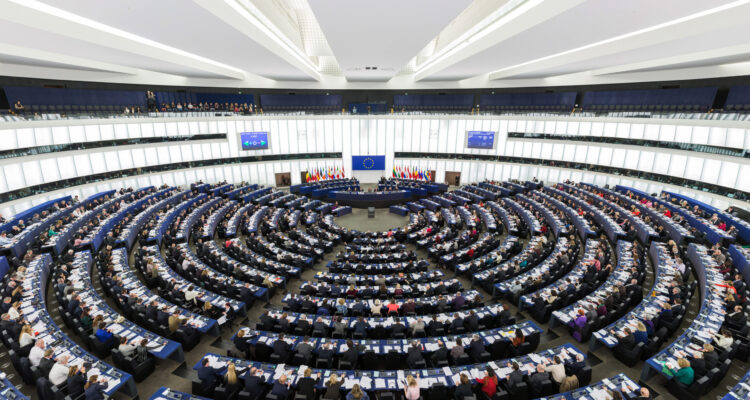The Environment Committee of the European Parliament has expressed its support for the European Commission’s recent initiatives to reduce emissions from Heavy Goods Vehicles (HGVs) this week. Additionally, the committee has emphasised the need to end exemptions for garbage, construction, and small urban trucks from the European Union’s emission reduction targets. They have also called for trailer manufacturers to achieve a 12.5% reduction in trailer emissions by 2030.
Even though the United Kingdom is no longer a part of the EU, these new regulations will continue to impact UK fleet operators significantly. This is because the majority of trucks used in the UK are manufactured in Europe.
In a recent vote, Members of the European Parliament (MEPs) endorsed a series of targets designed to significantly reduce the average emissions of new freight trucks. These targets include a 45% reduction by 2030, a 70% reduction by 2035 (higher than the Commission’s proposed 65%), and a substantial 90% reduction by 2040. Importantly, the MEPs are pushing for these standards to cover the 20% of heavy-duty vehicle sales that the Commission had originally intended to exempt. This group includes garbage trucks, construction vehicles, and small trucks designed for city deliveries.
Fedor Unterlohner, the freight manager at the environmental think tank Transport and Environment (T&E), emphasised the MEPs’ determination to set ambitious targets. He noted that there is a growing consensus among lawmakers that these targets represent the minimum necessary to promote decarbonisation within the trucking sector. MEPs also called for a 12.5% improvement in the emissions performance of truck trailers by 2030, which is slightly less stringent than the Commission’s initial proposal. This measure is intended to reduce the energy consumption associated with hauling trailers, making it possible for zero-emission trucks to travel longer distances.
In a move consistent with the Commission and environmental ministers, the Environment Committee has rejected any exceptions for trucks powered by e-fuels and biofuels. While e-fuels are considered a last resort and primarily intended for sectors with limited decarbonisation options like aviation and shipping, most biofuels are regarded as unsustainable. Research cited by T&E suggests that the use of synthetic fuels could increase the total cost of truck ownership by as much as 50%, even under the most optimistic conditions. Furthermore, these fuels continue to emit toxic air pollutants that can harm human health.
Unterlohner highlighted the rejection of loopholes for biofuels and e-fuels, stating that such exemptions such as bio-fuels, would encourage the continued use of fossil-fuelled trucks in the coming years, maintaining a demand for fossil fuels. He called on the Parliament plenary to remain firm in opposing these alternative fuels.
The European Parliament will finalise its stance on CO2 standards for heavy-duty vehicles during its plenary session on November 21 or 22.






